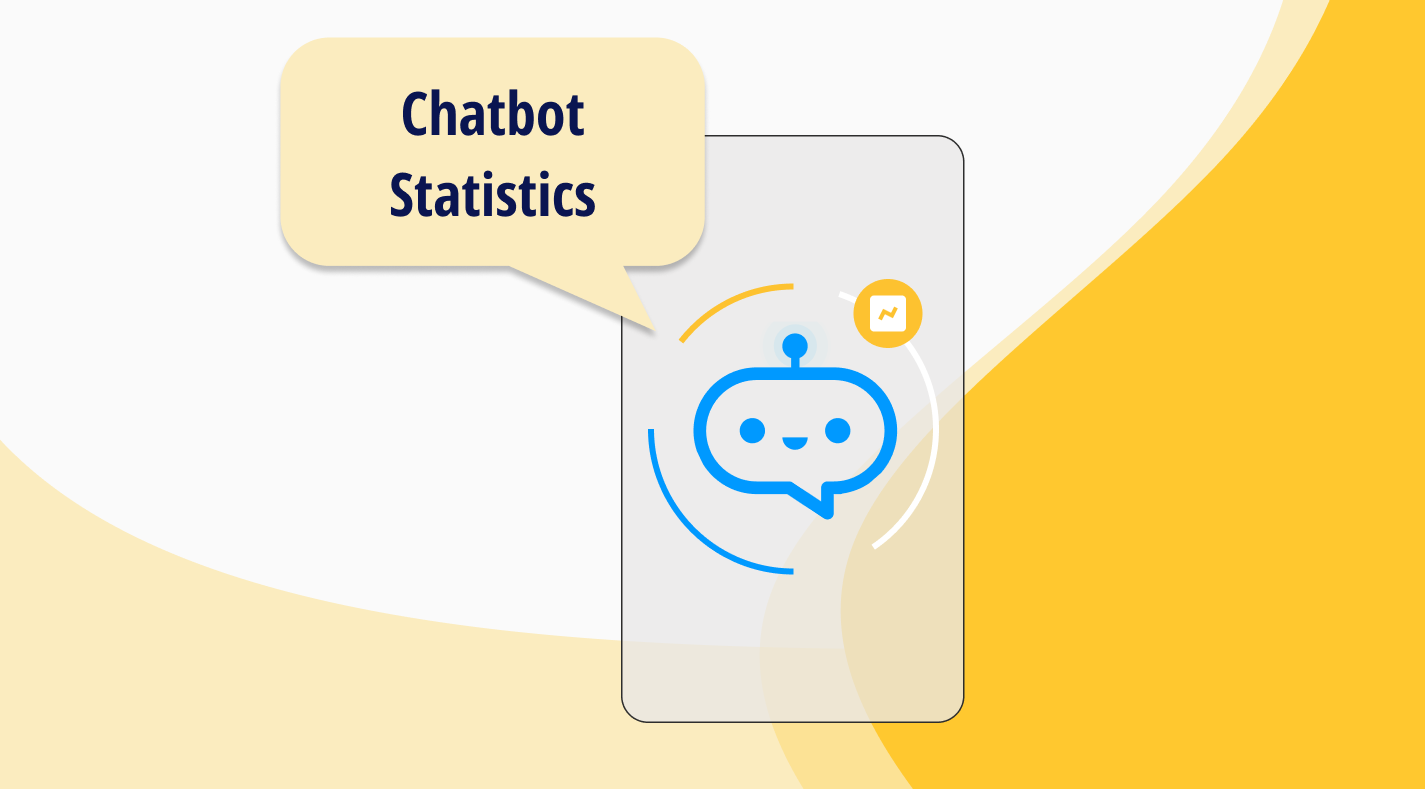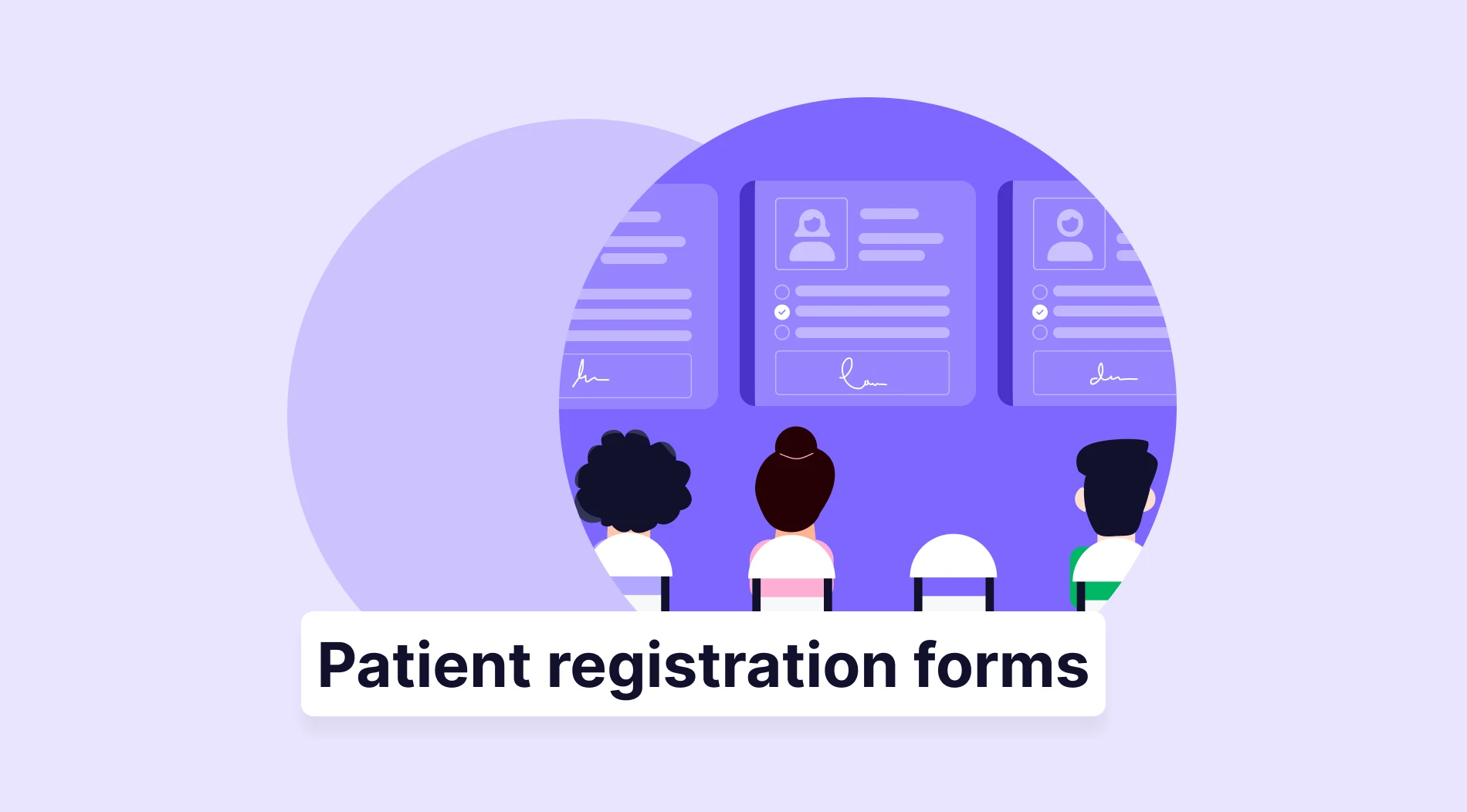The concept of artificial intelligence and chatbots has become evident in almost every sector. The usage area of chatbots is vast. Whether you are a business owner trying to increase customer satisfaction or a student struggling with homework, chatbots will help you. People from all walks of life use chatbots, and they make people's lives easier.
Do you want to catch up with the times and increase operational efficiency in your company? If so, you should learn about chatbots and give importance to the use of them. In this article, we have gathered 45+ chatbot statistics for you to get ideas and improve your business. Without wasting any more time, let's move on to our article.
Highlighted statistics about chatbot
Chatbots are widely used in many areas of the business world. By utilizing chatbots in your own business, you can enhance customer experience. But first, start by examining the highlighted statistics about chatbots in this section. This way, you will be able to take more accurate steps by making comparisons between data. Now, let's see the highlighted statistics:
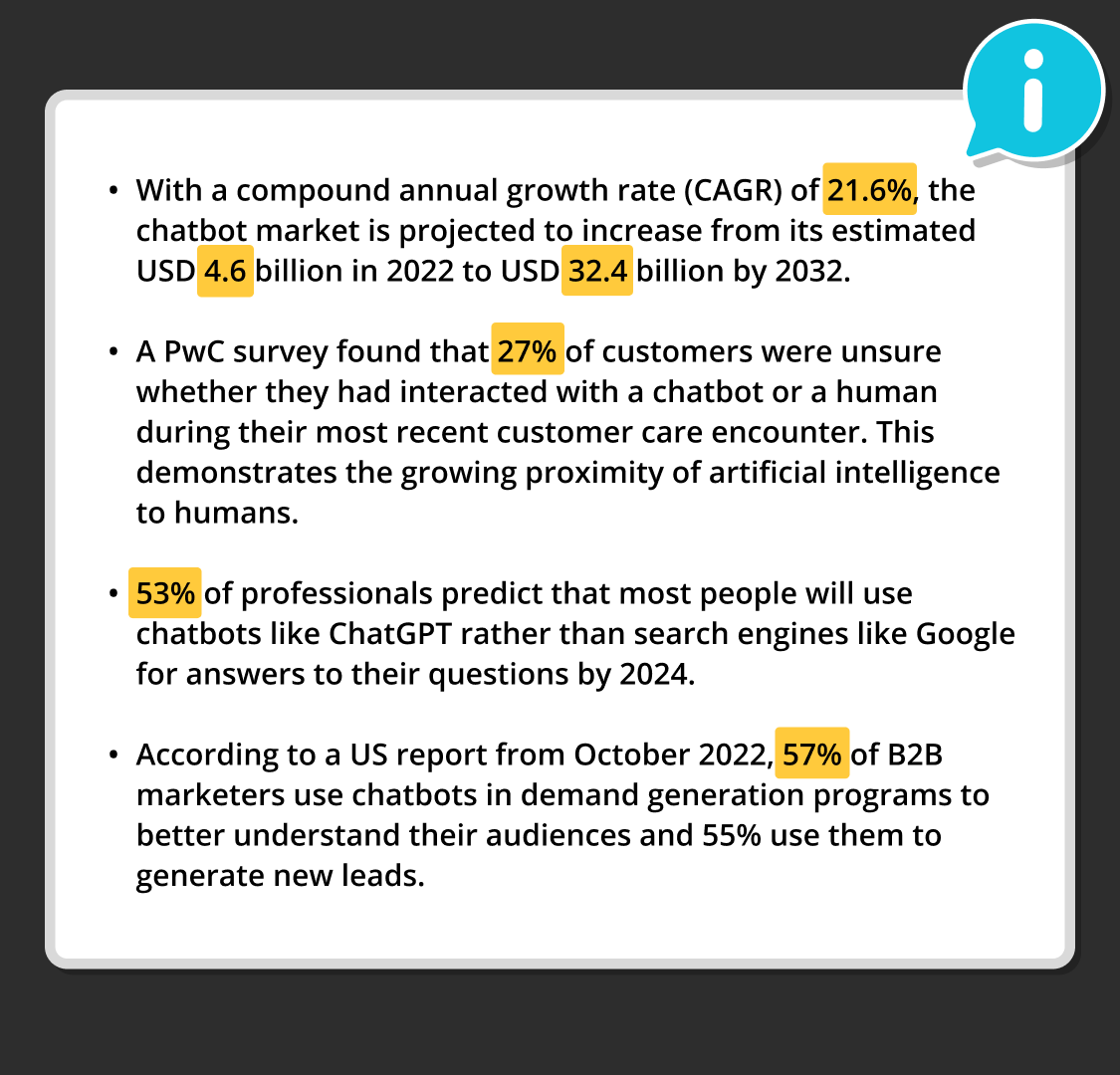
Highlighted statistics about chatbot
- With a compound annual growth rate (CAGR) of 21.6%, the chatbot market is projected to increase from its estimated USD 4.6 billion in 2022 to USD 32.4 billion by 2032 (DataHorrizon Research).
- A PwC survey found that 27% of customers were unsure whether they had interacted with a chatbot or a human during their most recent customer care encounter. This demonstrates the growing proximity of artificial intelligence to humans (PwC).
- 53% of professionals predict that most people will use chatbots like ChatGPT rather than search engines like Google for answers to their questions by 2024 (HubSpot).
- According to a US report from October 2022, 57% of B2B marketers use chatbots in demand generation programs to better understand their audiences and 55% use them to generate new leads (Statista).
- According to Insider Intelligence, the healthcare, banking, and retail industries could save 11 billion dollars a year through the use of chatbots (Insider Intelligence).
- With a projected valuation of $467.4 million in 2022 and a compound annual growth rate (CAGR) of 25.6% from 2023 to 2032, the worldwide insurance chatbot market is expected to reach $4.5 billion by 2032 (Allied Market Research).
- Chatbots help human resources departments save over 12,000 work hours annually (Tidio).
45+ Eye-opening chatbot statistics to get valuable insights
Whether you are a student seeking answers to simple questions or a business owner aiming to reduce expenses, chatbots are here to help. In addition to reducing costs, you can provide fast and 24/7 customer service using chatbots. Categorized statistics about chatbots will help you learn the topic in detail. Here are 45+ chatbot statistics to get ideas:
General statistics about chatbot
Analyzing the statistics about chatbots will help you understand the value and contribution chatbots bring to companies and customers. Statistics will also encourage you to use chatbots. General statistics about the chatbot will give you a general idea before categorizing the data and going into detail. Now, check out these available statistics about chatbots:
1. With a compound annual growth rate (CAGR) of 21.6%, the chatbot market is projected to increase from its estimated USD 4.6 billion in 2022 to USD 32.4 billion by 2032 (DataHorrizon Research).
2. In contrast to 50% of agents without AI chatbots, 64% of agents using chatbots can dedicate most of their time to solving complicated problems (The 360 Blog).
3. A PwC survey found that 27% of customers were unsure whether they had interacted with a chatbot or a human during their most recent customer care encounter. This demonstrates the growing proximity of artificial intelligence to humans (PwC).
4. 87.2% of customers said they had positive or neutral interactions with chatbots. Furthermore, rather than waiting for human agents, 62% of customers would rather interact with chatbots for customer assistance (Master of Code).
5. An Uberall study found that while 80% of consumers say they have had favorable interactions with chatbots, roughly 60% still lack enthusiasm about the technology (Uberall).
6. In a 2019 survey, 77% of customers predicted that within the next 5 years, chatbots will transform their expectations from companies (The 360 Blog).
7. 40% of consumers do not care whether a chatbot or an actual human helps them as long as they get the help they need (Invesp).
8. Chatbots can reduce customer service costs by up to 30%. In the US alone, chatbots could save 23 billion dollars (Medium).
9. Chatbot usage increased by 67% between 2018 and 2020 (Salesforce).
10. 40% of millennials claim that they interact with a chatbot every day (MarketingDive).
11. According to a survey, 34% of the respondents stated that they would be relieved to receive customer service from artificial intelligence in online retailing (Statista).
12. An Uberall survey found that 29% of consumers had no interest in chatbots (Uberall).
13. Chatbots are capable of doing 80% of routine tasks and 30% of live chat conversations (Master of Code).
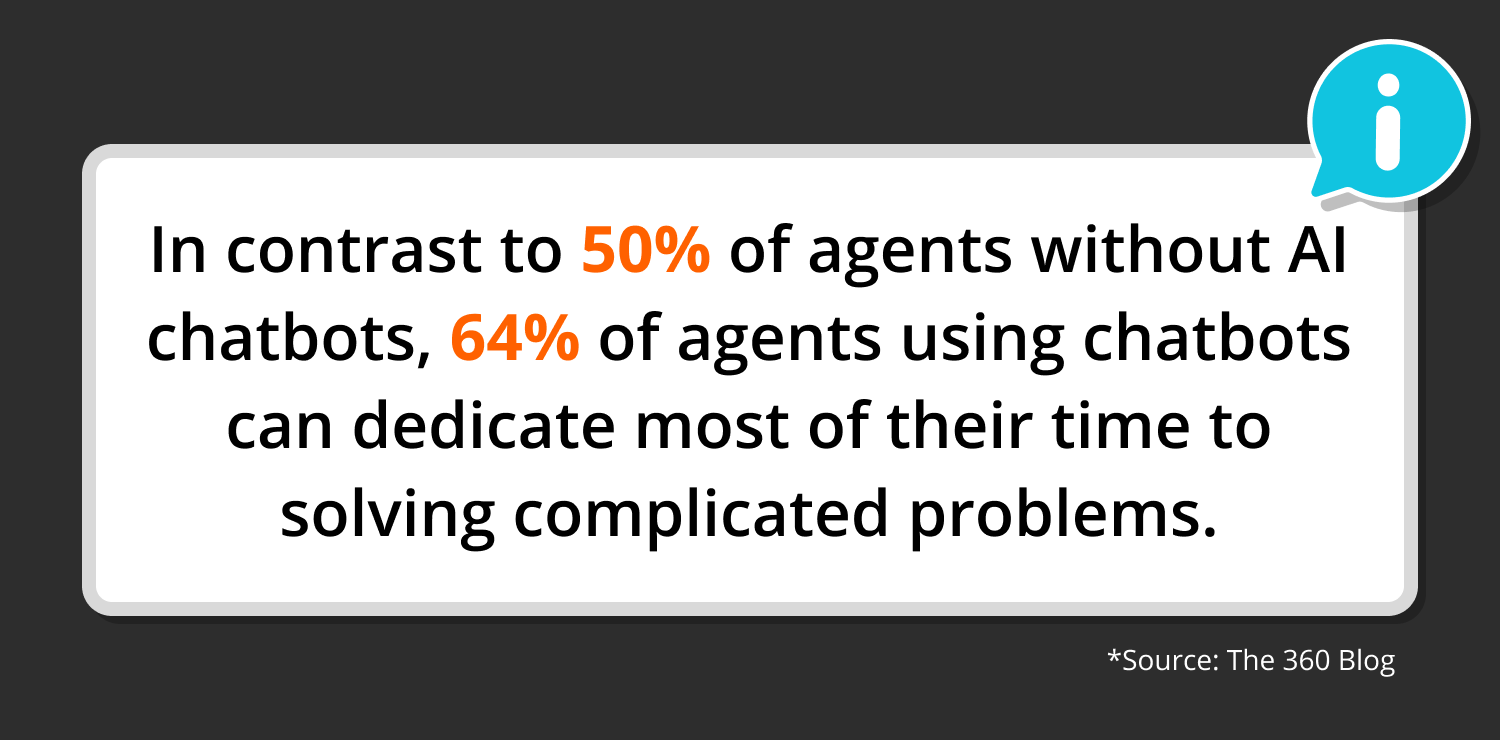
Source: The 360 Blog
Chatbot usage statistics
Reading detailed chatbot adoption statistics will show you data such as frequency of use and who uses them the most. You will also read the main reasons why people use chatbots and their opinions about it. You can make inferences in the light of this data and move your business forward. Let's move on to chatbot usage statistics:
14. 53% of professionals predict that most people will use chatbots like ChatGPT rather than search engines like Google for answers to their questions by 2024 (HubSpot).
15. More than 40% of global internet users would rather communicate with chatbots than virtual agents (Insider Intelligence).
16. In 2019, 53% of service organizations were expected to use chatbots by 2021. This represented a growth rate of 136% (The 360 Blog).
17. Chatbots, Grammarly, Jasper, and other AI tools are used in the workflows of 35% of marketers, 54% of bloggers, and 41% of business managers (HubSpot).
18. In a survey conducted by Userlike, 68% of respondents said that the most positive aspect of chatting with a chatbot is getting answers quickly (Userlike).
19. 54.8% of users stated that using chatbot tools increases the amount of high-quality leads they receive (HubSpot).
20. 67% of respondents to a PwC survey said AI could speed up response times while maintaining personalization (PwC).
21. 54% of respondents in the Userlike survey would use a chatbot to ask a question about a product, 30% to pay a bill, and 23% to settle disputes (Userlike).
22. 88% of web users used chatbots in 2022, and 7 out of 10 users found the experience positive (Tidio).
23. Only 9% of Userlike survey participants said businesses shouldn't use chatbots (Userlike).
24. In a study conducted by Uberall, 40% of participants expressed interest in chatbot technology. 20% of respondents said they were interested in communicating with AI (Uberall).
25. About 1.5 billion people use chatbots, and the top 5 countries are the United States, India, Germany, the United Kingdom, and Brazil (Tidio).
💡If you want to read about more AI chatbot statistics, you can check our 60+ insightful AI statistics.
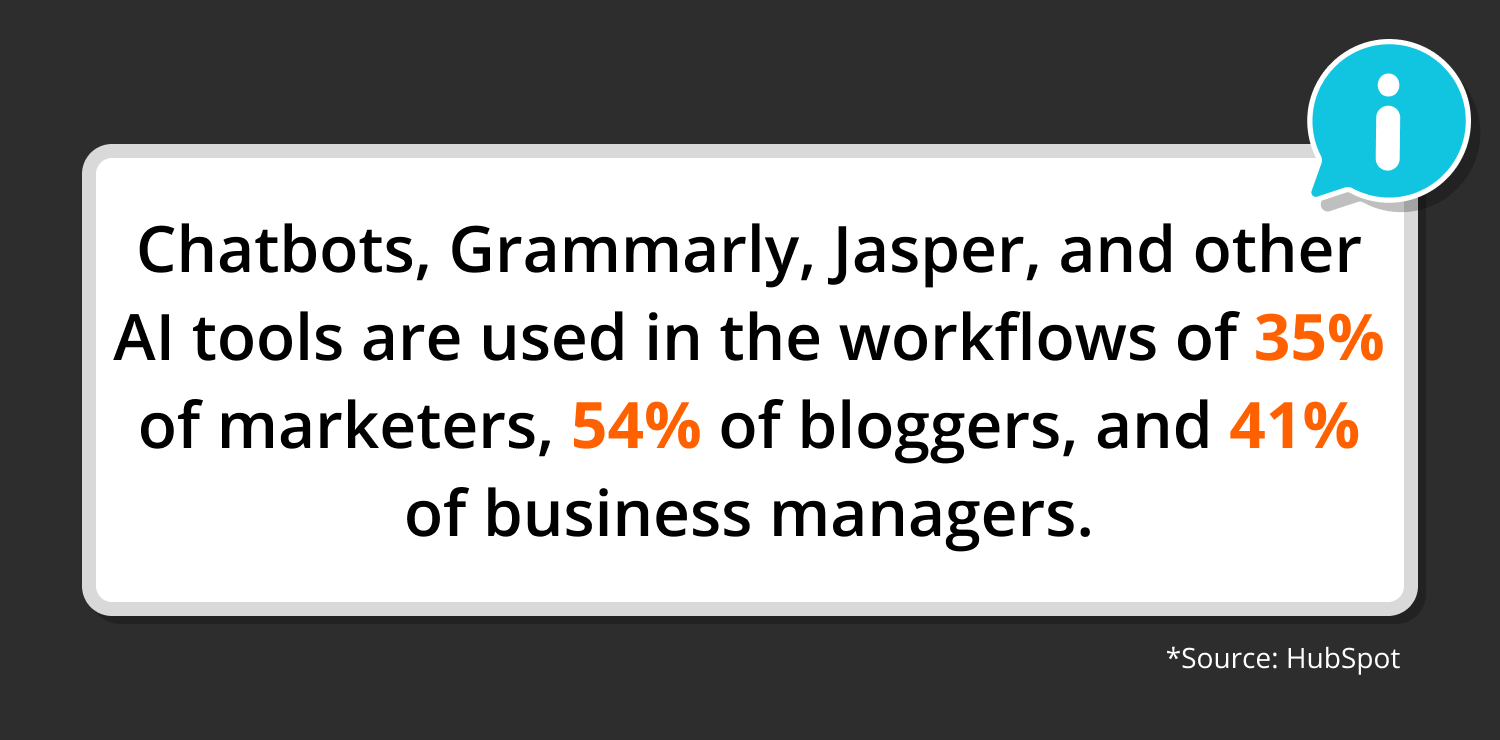
Source: HubSpot
Chatbot and industry statistics
Chatbots find a place in almost every industry and contribute to organizations worldwide. Many industries save millions of dollars every year thanks to chatbots and artificial intelligence. While examining chatbot growth statistics and chatbot industry statistics, you can make comparisons between sectors. Also, you can get information about chatbot usage in your field. Here are the chatbot and industry statistics:
26. According to Insider Intelligence, AI might automate up to 73% of administrative tasks in the healthcare industry (Insider Intelligence).
27. According to a survey conducted in the United States in October 2022, 26% of B2B marketers who used chatbots saw an increase in lead generation volumes between 10 and 20 percent (Statista).
28. According to Insider Intelligence, the healthcare, banking, and retail industries could save $11 billion a year through the use of chatbots (Insider Intelligence).
29. According to a US report from October 2022, 57% of B2B marketers use chatbots in demand generation programs to better understand their audiences, and 55% use them to generate new leads (Statista).
30. Chatbots help human resources departments save over 12,000 work hours annually (Tidio).
31. In the field of customer service, about half of respondents from the United Kingdom and about 40% from the United States stated they prefer to interact with a person rather than a chatbot (Forbes).
32. Career websites that use chatbots online to interact with job searchers receive 95% more leads (Tidio).
33. The top five industries benefiting from the use of chatbots in 2019 were real estate (28%), travel (16%), education (14%), healthcare (10%), and banking (5%) (Medium).
34. 43% of banking customers would rather use chatbots to resolve issues (Tidio).
35. Healthcare chatbots are used by about 52% of US patients to get medical data (Medium).
💡Check out our 80+ eye-opening customer service statistics if you are curious about more statistics.
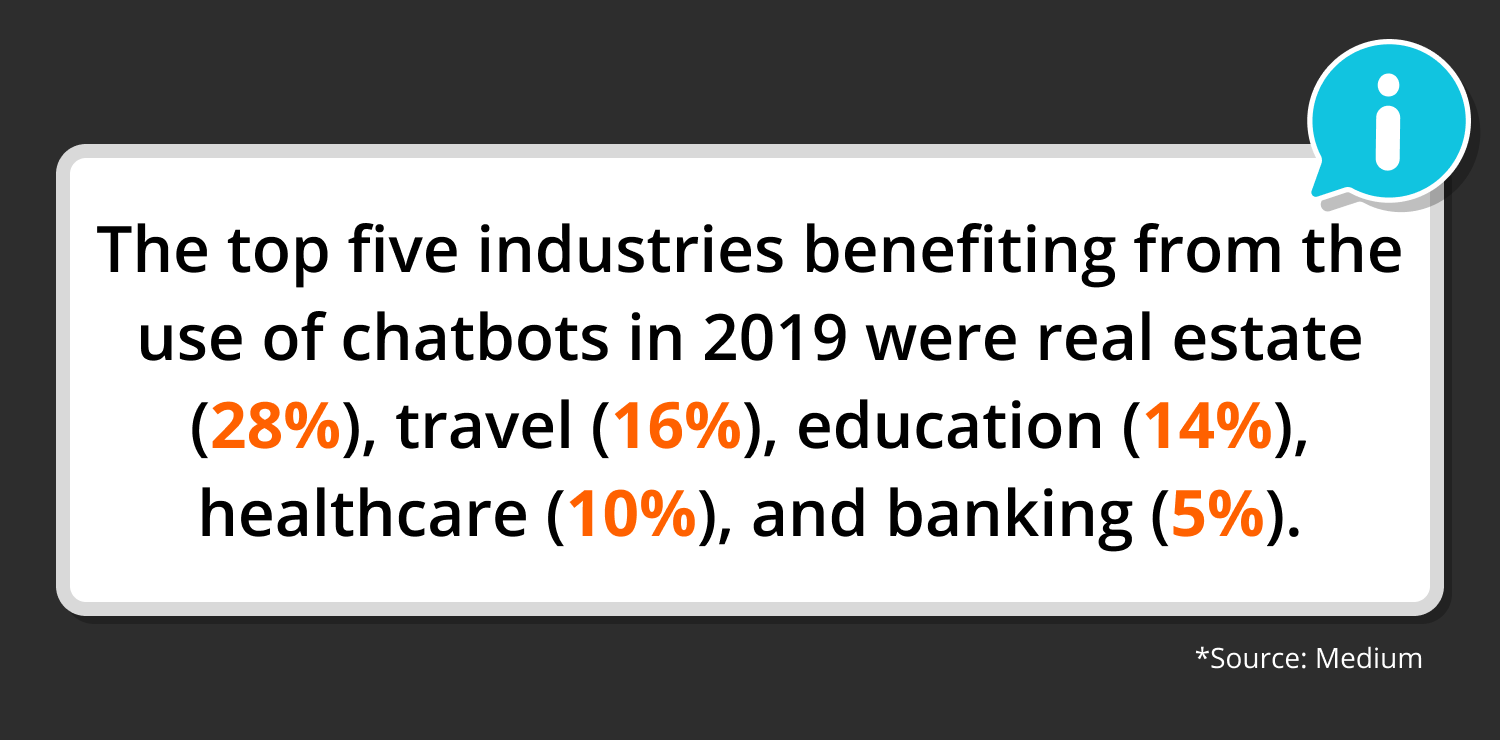
Source: Medium
Chatbot market statistics
The chatbot market size is growing day by day, and according to statistics, it will continue to grow in the near future. If you want to save money and increase customer satisfaction by using chatbots, you should take a look at chatbot market statistics. Without further ado, have a look at these chatbot market statistics:
36. The North American region holds the largest share of the chatbot market (DataHorrizon Research).
37. The chatbot market is predicted to reach $994 million globally by 2024, growing at a compound annual growth rate of 27% since 2019 (ClickZ).
38. The chatbot market is expected to grow significantly from its 2016 size of 190.8 million dollars to a projected 1.25 billion dollars in 2025 (Statista).
39. By 2030, the size of the chatbot market in banking, financial services, and insurance is projected to be roughly 7 billion dollars (Tidio).
40. The market for healthcare chatbots is expected to reach 543 million dollars by 2026 (Medium).
41. According to projections, the chatbot market will grow at an unforeseen rate between 2022 and 2029, reaching multimillion USD in size (LinkedIn).
42. According to 60% of customers between the ages of 35 and 44 in the US, businesses are replacing human representatives with chatbots too quickly (CGS).
43. Larger companies have increased their share of the chatbot market to over 46%, and this trend is expected to continue (All the Research).
44. With a 31.2% CAGR, the voice assistant market is expected to increase from 4.59 billion dollars in 2022 to 30.72 billion dollars by 2030 (Market Research Future).
45. With a projected valuation of 467.4 million dollars in 2022 and a compound annual growth rate (CAGR) of 25.6% from 2023 to 2032, the worldwide insurance chatbot market is expected to reach 4.5 billion dollars by 2032 (Allied Market Research).
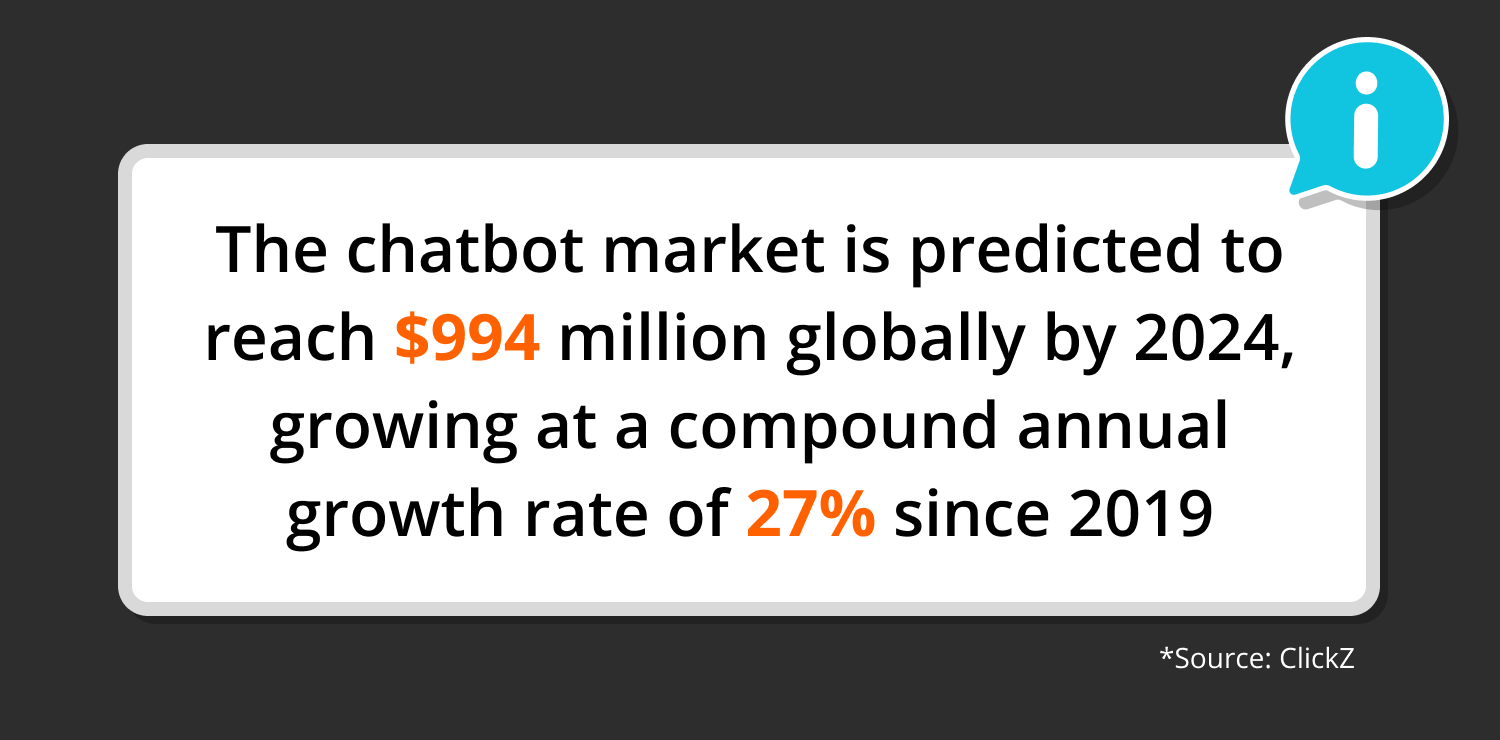
Source: ClickZ
Key points to take away
In our article, you have seen some essential data about chatbots. If you want to grow your company using chatbots, the statistics in this article can be the first step for you. You also saw in our article that chatbots are very useful for businesses. As you can see from the statistics, a few of these benefits are mainly as follows:
- Providing 24/7 and fast customer service
- Ensuring more consistent support
- Increasing operational efficiency
- Reducing expenses
- Increasing customer satisfaction
To help you improve your business and give you more precise information on the subject, we have gathered 45+ chatbot statistics. Now, you have all the knowledge you need about chatbots. You can use these statistics to understand the topic, create better plans, and reach your goals!
Fatih is a content writer at forms.app. He is also a translator and interpreter. Fatih loves reading and writing. He is passionate about exercising and traveling. His specialties are surveys, statistics, and translation.
